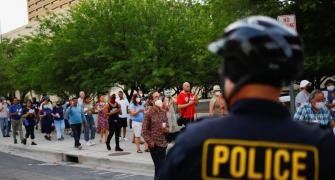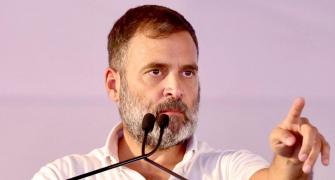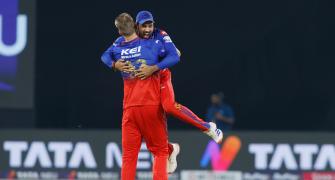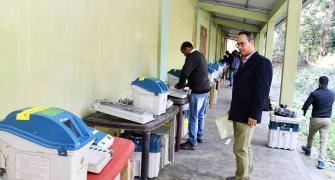If anyone asks who should be named the pioneer of online Futures trading exchanges in commodities, the first name that would prop up will be that of Kailash Gupta.
The National Multi Commodities Exchange of India, founded by Gupta, was the first to provide online transaction facilities to investors who wanted to buy and sell Future contracts of commodities.
The electronic platform and the system of online trading became so successful that other players jumped into the fray. Today, there are over a dozen online commodity exchanges in the country, a majority of them dealing only in specific commodities.
Commodity Market caught up with the globe-trotting managing director of NMCE soon after a board meeting he had convened to discuss the fate of Futures trading and the policy decisions the Indian government should take to enable 100 million farmers to realise remunerative prices for their produce while providing food security to over 1.1 billion consumers.
Gupta strongly believes that in a globalised economy, India needs to put in place systems that can make the most of free trade while protecting its national interests. He points out that only a fully aware Indian producer and consumer, backed by a transparent and accountable trading system, can prosper.
He cites the example of rubber and spices exchanges that have benefited the farmers and traders of Kerala to prove his point.
In an hour-long interview with Rajesh Shah of Commodity Market, Gupta delves into the complex issues that policy makers have to deal with to make Futures trading in commodities a vehicle of growth and prosperity for Indian farmers and consumers.
NMCE introduced the concept of online commodity exchanges in India. After over four years of running this concept successfully, what is your take on commodity Futures in India?
Yes, NMCE introduced or rather 'revived' the concept of Futures trading in India, in demutualised or electronic form - from concept to commissioning. The NMCE initiative has resulted in two more similar exchanges coming up.
The other exchanges have followed the best global trading practices and the reliable delivery system evolved by NMCE. Farmers could now plan the cropping pattern too through Futures trading. The stakes are too high for 100 million farmers and one billion consumers, creating wealth for the nation.
Interestingly, producers are also consumers in a way. A wheat grower in Punjab would like to buy pepper or cardamom grown in Kerala at reasonable rates and so on. Commodity Futures in India will bring about a revolution, marking a ten-fold increase in the volume of trade within the next three years. This will benefit both producers and consumers. Futures trading has brought about awareness among the producers. Farmers' price intelligence has also increased.
What would be the scenario five years from now especially trading through commodity exchanges?
Five years is too long a period to predict for the commodity market. One thing is certain. It is no more an exclusive domain of some traders. Top B-schools in the country have introduced relevant courses in commodity markets, risk management and price discovery. Foreign institutional investors and multi-national corporations are eying a pie in this hitherto unexplored market. Foreign direct investments, if permitted, may change the entire complexion of the commodity trade. Let us not forget banks and mutual funds have changed the name of the game in a very short span.
Much depends on the policy decisions of the government. It is high time the government removes the control over Futures trading. Any control would cause more damage than benefits to the economy.
Which are the other commodities that can be traded on Futures exchanges?
At present, nearly 90 commodities are traded on the three national exchanges. They include bullion, base metals, mineral oil, food grains and cash crops like cotton and jute, spices, plantations, sugar, oilseeds, edible oils and their derivatives.
NMCE began with 24 commodities on November 26, 2002. Today, it trades in 59 commodities, in certain commodities like pepper in six series concurrently. It just added 'Erode' variety of turmeric this month.
If one looks at the commodities traded at New York, London, Chicago and Tokyo metals and commodity exchanges, it is mind-boggling. Any commodity that is subjected to high volatility and fluctuations in price could be traded in Futures exchanges, with the permission of the regulator.
Proposals for weather Futures, carbon emissions, energy etc are also in the pipeline and can be the next generation choices for investment. Before introducing new commodities on the Futures exchanges, it is important to carry out an in-depth research on each of the commodities to find out the viability of trading.
There is no point in introducing new commodities when the trading has remained dormant for many a commodity already listed on the exchanges.
When compared to Futures exchanges abroad, what is severely lacking in Indian exchanges, especially NMCE, MCX and NCDEX?
Nothing is lacking. In fact, we are far ahead of the Futures exchanges of the developed countries. While the more successful exchanges in a developed economy like the USA are still functioning in open outcry method, we have jumped to 100% online transparent trading platform.
Therefore, we are much advanced in terms of technology. The improvement could be in the investment pattern, approach, understanding and awareness for which efforts are collectively being made by the regulator and of the exchanges to educate the investor. There is scope for increasing the volume here. Global foreign exchanges trade in volumes 20-25 times the size of physical trading, depending upon the commodity. In India, there is scope to increase it to at least $2 billion (Rs 40,000 crore) daily from around Rs 10,000-12,000 crore (Rs 100 billion-120 billion)
What additional facilities do you require from the government side to develop commodity trading in India?
The Future Contract Regulation Act, 1952, needs to be amended to remove restrictions on options. Futures without options is like dancing without music. While the government has allowed options in securities trading, it is still to do so for commodities.
The government has initiated moves to provide financial support to growers through Venture Capitals and Small Farmers Agri-Business Consortium. Similarly, Nabard and Regional Rural Banks can play a greater role in this direction.
With institutional credit, the online commodity exchanges could free the growers from the clutches of rural indebtedness.
Are commodity exchanges creating wealth for its users and what is the combined figure till now?
Unlike securities exchanges, commodities exchanges are not for creating wealth. They are meant for better price discovery and to help farmers plan cropping pattern and help them hedge risks.
One cannot quantify the wealth generated by the stakeholders as is possible for the Securities. There are many stakeholders of the national online commodity exchanges.
Individuals, partnership firms, sole proprietorship, co-operative societies, companies, corporations and institutions incorporated under the Companies Act are eligible to be members of the exchange.
It may be recalled that NMCE was formed with a view to fulfilling some national goals. The basic objective is to protect the growers, notably farmers, from the value of their crops going below the cost of inputs through a transparent online price discovery and foolproof warehouse delivery systems.
We believe that once the dynamics of this mechanism are well placed and understood, wealth creation is not far to attain.
There is a general notion that price rise in pulses few months back was fuelled due to forward trading in pulses. How much this allegation holds true? What should be done to contain such kind of situation in the future?
It has been clarified umpteenth time by the FMC that Futures trading was not responsible for the rise in the prices of pulses or wheat. If it were so, all the commodities traded on Futures market should also have shot up.
India is a basic importer of pulses. The announcement banning exports of pulses sent out a signal, which had its singular effect in the market. Similar price hike was subsequently witnessed in case of wheat for different reasons, but vested interests and disgruntled elements pointed accusing fingers at everybody else.
There are other factors too, like sentiment, panic and seasonal cycles, which analysts often overlook or ignore. Five per cent shortfall in production in a certain commodity could trigger off a 10 per cent panic.
What was your major achievement during last four-and-a-half years of operations?
Over the years, we have increased the number of commodities traded on NMCE terminals from 24 to 59, as we plan to add few more shortly. We became the first commodity exchange in the world to get ISO 9001:2000 Certification. We were the first to offer Futures trading in rubber, cardamom, and raw jute - on an electronic platform - offering guaranteed clearing and settlements by assuming counter-party risks.
We are also in for horizontal growth. We have opened branch offices in metros like Mumbai, Delhi, Kolkata, Bangalore, Cochin as well as in traditional trading towns like Jodhpur Bikaner, Sriganganagar (Rajasthan).
We have been mandated by government of Rajasthan for creating an Electronic Spot Market.
Your (NMCE) had many firsts like launching various commodities in India on Futures exchange; but why is it so that other exchanges got off later on are ahead of NMCE in terms of volumes?
Volumes are no barometers to judge an exchange's capability and what it is trying to offer to the investors. NMCE's objective is not to get into the numbers game but to follow the criteria laid down by the government for setting up a 'Model National Exchange' with robust mechanisms.
Where do you place NMCE in terms of ranking with other exchanges operating in the country especially NCDEX and MCX and why?
NMCE will always remain the country's premier online multi-commodity exchange with nationwide reach, as the trendsetter in formulating and upholding its national objectives. And I rank NMCE as the leader and others will follow.
Your delivery mechanism is believed to be strong. Can you elaborate on how you made it strong?
We believe that a commodity Futures market without delivery-based settlement system is a crown without feather. Our delivery system is strong for two main reasons: One, because it is backed by the receipt system of Central Warehousing Corporation, a neutral organisation.
Second, we have a thorough understanding of logistics involved in this market.
Is this delivery mechanism which makes you believe in delivery of contracts unlike other exchanges where delivery is far less than what you have?
Yes, for sure, our model to form NMCE had a deep-rooted motive to have settlement of these contracts only via delivery and not cash settlement. In India, where any agri commodity has 50 different prices at 50 different locations you cannot come to one price to cash settlement and therefore delivery is important and the fair way to settle contract. NMCE does not want to become an arbitrator between buyers and sellers.
Your Kerala model is well appreciated. Do you plan to replicate that in other states? Which are the states and how different?
Our Kerala model has seen success mainly because of the high literacy rate of the people of Kerala. People there look at long-term benefits and not short-term profits. Kerala is rightly called 'God's own country'. Education and implementation of land reforms laws have made it the 'God's own country'. We need to educate people of other states if we want to replicate the Kerala model there. Indeed, we intend to replicate the Kerala model in all the states.







